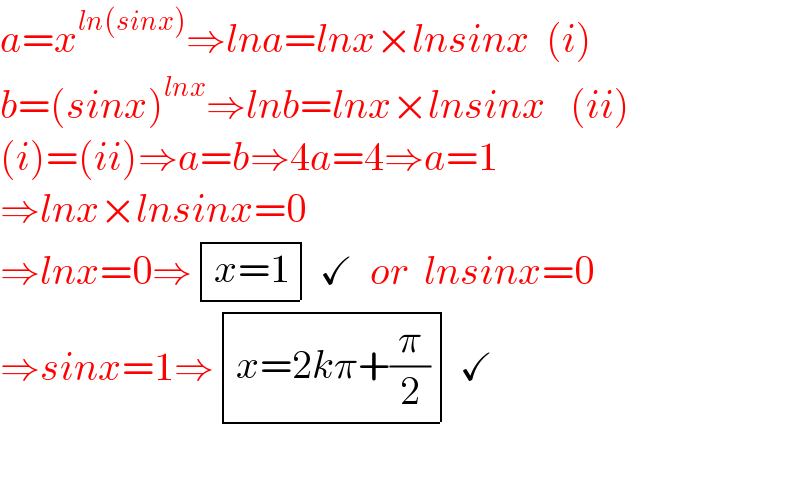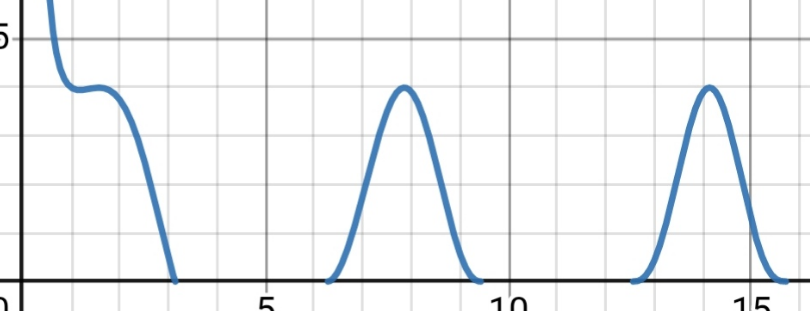
Question Number 197147 by sonukgindia last updated on 08/Sep/23

Answered by Frix last updated on 10/Sep/23

$$\mathrm{Obviously}\:{x}=\mathrm{1}\vee{x}=\frac{\pi}{\mathrm{2}}\vee{x}=\frac{\mathrm{5}\pi}{\mathrm{2}}\:\mathrm{because} \\ $$$$\mathrm{ln}\:\mathrm{1}\:=\mathrm{0}\:\mathrm{and}\:\mathrm{sin}\:\frac{\pi}{\mathrm{2}}\:=\mathrm{1} \\ $$
Commented by sonukgindia last updated on 09/Sep/23

$${o} \\ $$$${think}\:{all}\:{possibilities} \\ $$
Answered by MM42 last updated on 09/Sep/23

$${a}={x}^{{ln}\left({sinx}\right)} \Rightarrow{lna}={lnx}×{lnsinx}\:\:\left({i}\right) \\ $$$${b}=\left({sinx}\right)^{{lnx}} \Rightarrow{lnb}={lnx}×{lnsinx}\:\:\:\left({ii}\right) \\ $$$$\left({i}\right)=\left({ii}\right)\Rightarrow{a}={b}\Rightarrow\mathrm{4}{a}=\mathrm{4}\Rightarrow{a}=\mathrm{1} \\ $$$$\Rightarrow{lnx}×{lnsinx}=\mathrm{0} \\ $$$$\Rightarrow{lnx}=\mathrm{0}\Rightarrow\begin{array}{|c|}{{x}=\mathrm{1}}\\\hline\end{array}\:\checkmark\:\:{or}\:\:{lnsinx}=\mathrm{0} \\ $$$$\Rightarrow{sinx}=\mathrm{1}\Rightarrow\begin{array}{|c|}{{x}=\mathrm{2}{k}\pi+\frac{\pi}{\mathrm{2}}}\\\hline\end{array}\:\checkmark \\ $$$$ \\ $$
Commented by MM42 last updated on 09/Sep/23

Commented by MathematicalUser2357 last updated on 10/Sep/23

$$\mathrm{That}'\mathrm{s}\:\mathrm{Desmos} \\ $$
